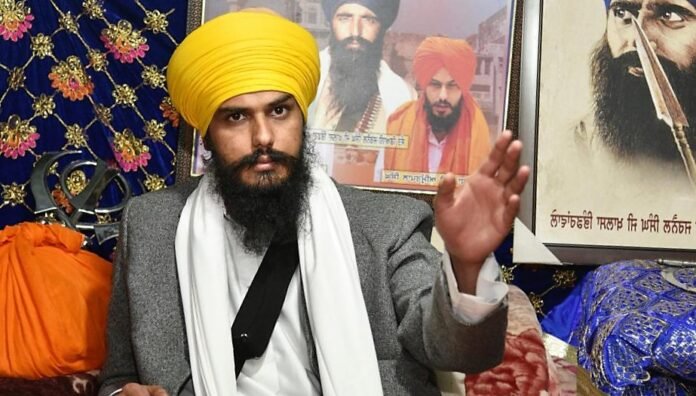A prominent Sikh separatist leader, Amritpal Singh, has finally been apprehended by Indian police in the town of Moga, situated in the northern state of Punjab. Singh, who had been evading capture since last month, has been agitating for an independent Sikh homeland, with Punjab as the new state. This region is not new to insurgency, having witnessed the killing of India’s then-Prime Minister, Indira Gandhi, by her Sikh bodyguards in 1984. That event sparked violent riots by Hindu supporters of the Prime Minister against Sikhs in northern India.
Singh’s Arrest – An Intricate Series of Events
Sources report that Amritpal Singh surrendered to police after offering morning prayers at a Sikh shrine in Moga, according to a religious leader. Singh was then arrested and taken away. Authorities had surrounded the local village after receiving intelligence that Singh was in the shrine. However, the police refrained from entering the shrine, thereby suggesting that Singh was taken into custody after he left. The separatist leader has now been flown to Dibrugarh in India’s northeast, where he will be detained until his court appearance to face charges.
Charges Against Singh – A List of Accusations
Singh and his accomplices have been charged with sowing discord in the state by inciting hatred, attempted murder, attacking police personnel, and obstructing public servants from discharging their duties lawfully. The authorities have detained almost 100 of Singh’s supporters, and his wife was prevented from leaving India last week.
Singh’s Background – A Man of Many Interests
Before Amritpal Singh arrived in Punjab state in 2022 to lead marches advocating for the protection of Sikh rights, very little was known about him. Singh claims to draw inspiration from Jarnail Singh Bhindranwale, a Sikh militant leader accused by the Indian government of heading an armed insurgency for Khalistan in the 1980s. With his long, flowing beard and a similar dress sense, Singh has fashioned himself after Bhindranwale. He also leads Waris Punjab De, an organization that was part of a massive campaign mobilizing farmers against controversial agricultural reforms by Prime Minister Narendra Modi’s government.
The Khalistan Movement – An Unlawful Push for Autonomy
As Singh’s speeches gained popularity, they found a receptive audience among supporters of the Khalistan movement, which has been banned in India. Government officials view the movement and affiliated groups as a grave national security threat. The Khalistan movement seeks to establish an independent Sikh homeland and still has some backing in Punjab and beyond, including countries such as Canada, the United States, and the United Kingdom, home to a sizable Sikh diaspora. Last month, supporters of the movement pulled down the Indian flag at the country’s high commission in London and vandalized the Indian Consulate in San Francisco, protesting Singh’s arrest.
Implications of Singh’s Arrest – A Complex Matter
Amritpal Singh’s arrest has raised concerns of renewed unrest in Punjab, with apprehensions that it could lead to violent protests by Sikh separatists. The region has been the site of violent insurgency before, and the Indian government is expected to adopt a stern stance against any attempt to revive it.
Singh’s arrest has also brought into sharp focus the ongoing tensions between India and Pakistan over the issue of Kashmir. India has accused Pakistan of backing, training, and arming insurgents in the region, which Pakistan vehemently denies. With Punjab sharing borders with both India-controlled Kashmir and Pakistan, the Indian government might interpret Singh’s arrest as a warning to Pakistan that it will not allow any interference in its internal affairs.
Conclusion – The Road Ahead
The apprehension of Amritpal Singh is a crucial event in India’s ongoing fight against Sikh separatism. Although the movement has lost much of its momentum over the years, it still has some support in Punjab and other parts of the world, and officials view it as a significant national security risk. The Indian government is likely to take a strict stand against any effort to rekindle the insurgency, and the situation in the region will be monitored closely in the weeks and months ahead.











